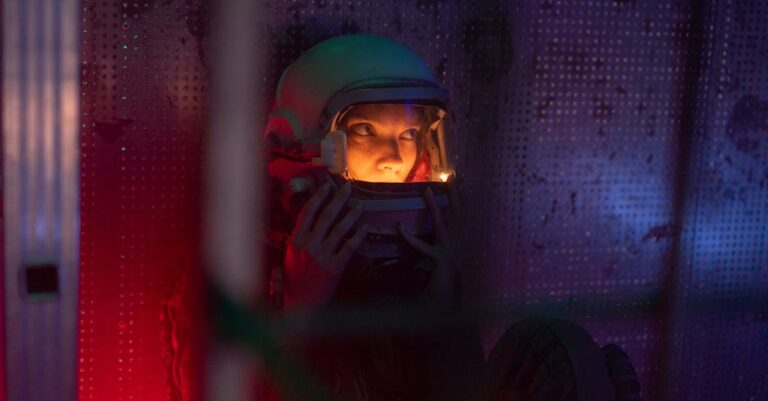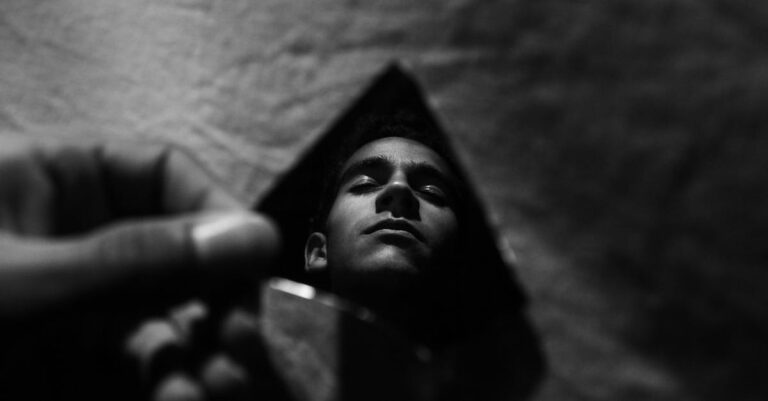
Dr. Elara Voss adjusted the magnifying lens over her left eye, the cold metal biting into her brow as she leaned closer to the subject’s wrist. The skin there was pale, almost translucent, and the veins pulsed with a faint blue luminescence that flickered like dying embers. The subject—named Kael by the lab records—had been admitted two weeks prior under the guise of a rare neurological disorder. But Elara knew better. The data from his brain scans didn’t align with any known condition. His hippocampus was hyperactive, firing in patterns that defied logic, as though his mind existed in a constant state of recall.
“You’re seeing this?” Kael’s voice was low, almost a whisper, but it carried the weight of a question that had no answer. He stared at the back of his hand, where the blue light pulsed in time with his heartbeat. Elara nodded, her fingers tightening around the edge of the lab table. The room smelled of antiseptic and ozone, a metallic tang that clung to her tongue.
“I’ve seen it before,” Kael said. “In dreams. But this… this is real.” He lifted his wrist, and the glow intensified, casting shadows across his angular face. Elara’s pulse quickened. She had spent years studying memory, but nothing in her training prepared her for this. The subject wasn’t just recalling memories—he was reconstructing them, piece by piece, as if pulling fragments of a forgotten life from the void.
The first time it happened, Elara had been documenting Kael’s neural activity. She’d noticed a spike in his hippocampal readings, a surge so intense it registered on the EEG as a jagged line. Then, without warning, he had closed his eyes and whispered a name: *Lira*. The word hung in the air, unfamiliar yet achingly personal. Elara had dismissed it as a hallucination, but when she checked the lab logs, she found no record of a Lira. Not in Kael’s files, not in the patient database. It was as if the name had been erased from existence.
“What’s next?” Elara asked, her voice steady despite the unease coiling in her gut. Kael’s gaze flicked to hers, and for the first time, she saw something in his eyes—fear, maybe, or the remnants of a memory too painful to hold. He opened his mouth, but before he could speak, the lights in the lab flickered. A low hum filled the air, and Elara’s vision blurred. When it cleared, Kael was still there, but something had changed.
“I don’t remember why I’m here,” he said, his voice tinged with confusion. Elara’s breath caught. This wasn’t the first time he’d lost a memory, but the way he said it—like a revelation—made her stomach drop. She reached for the clipboard on the table, but her fingers trembled. The notes she’d taken earlier were gone, erased as if they’d never been written. Her own name felt distant, like a word on the edge of recall.
“What did you see?” she asked, though she already knew the answer. Kael shook his head, his brow furrowed in frustration. “I don’t know. It’s like… I was somewhere else. A city, maybe. But I can’t hold it. It slips away.” He pressed a hand to his temple, and the blue light on his wrist pulsed again, brighter this time. Elara stepped back, her pulse thrumming in her ears. The experiment had started as a study of memory, but now it felt like something else entirely—something that gnawed at the edges of her mind, unraveling her sense of self.
That night, Elara pored over the lab’s archives, searching for any mention of Kael’s past. The files were sparse, filled with generic descriptions and vague diagnoses. But as she scrolled through the records, a pattern emerged—a series of patients with similar symptoms, all admitted around the same time. Their memories had been… altered. Not erased, but reshaped, as if someone had rewritten their pasts. The realization sent a chill down her spine. This wasn’t just an experiment. It was a process, one that left no trace behind.
The next morning, Elara returned to Kael’s chamber, determined to ask the question that had been burning in her mind. But when she arrived, the room was empty. The biometric scanner on the door registered no activity, and the bed where he’d slept was cold. A single sheet of paper lay on the table, its ink smudged as if written in a hurry. The words were familiar, though she couldn’t place why: *Remember what you’ve forgotten.*
Elara’s hands shook as she picked up the note. The script was precise, almost mechanical, but there was an urgency in the strokes that made her stomach churn. She turned to the door, her mind racing. If Kael had left, then the experiment wasn’t over—it was just beginning. And whatever it was, it wasn’t about memory. It was about control.
She didn’t know how long she stood there, staring at the note, before the realization hit her: she didn’t remember what had happened after Kael’s last session. The details were gone, erased like they’d never existed. Her own past felt fragile, a mosaic of fragments that no longer fit together. The thought terrified her, but it also ignited something else—a stubborn resolve. If the experiment was about control, then she would find the truth, no matter the cost.
As she stepped out of the chamber, the lab’s lights dimmed, casting the hallway in a pale, flickering glow. The air smelled different now, heavier, as if the very walls were holding their breath. Elara didn’t look back. She had to keep moving, had to find Kael before whatever was happening to her mind slipped beyond her grasp. The stakes weren’t just her sanity anymore—they were everything.
The corridors stretched before her, endless and silent, but she didn’t slow down. Somewhere in this place, the answers waited. And she would find them, even if it meant confronting the truth about who she was—and who she had never been.


